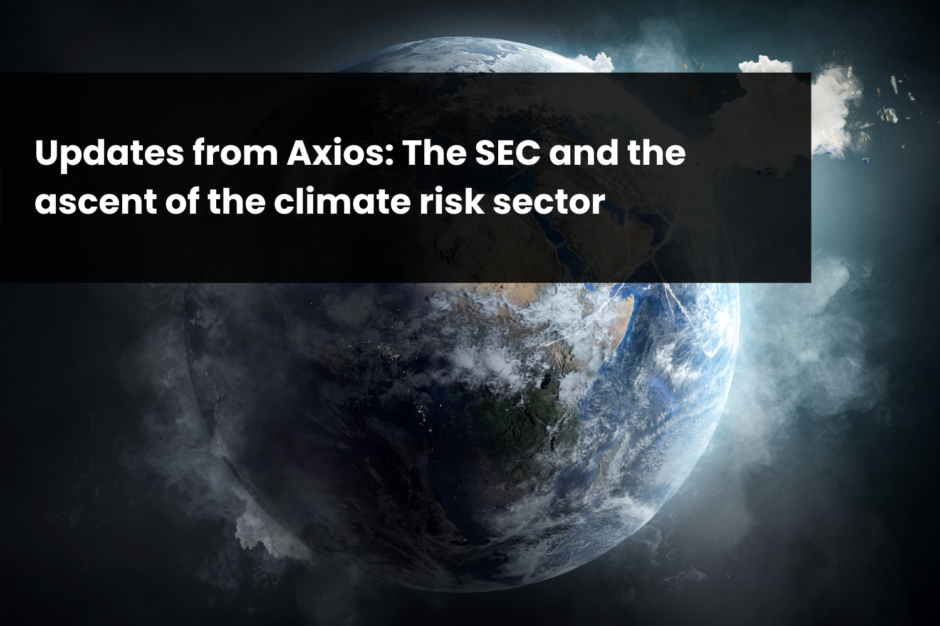Updates from Axios: The SEC and the ascent of the climate risk sector
CREtech

Thanks for keeping up with the CREtech Community in the News! For more news about members of the CREtech Community, follow us on Linkedin.
The Securities and Exchange Commission's recent implementation of climate risk disclosure regulations coincides with the emergence of a comprehensive ecosystem dedicated to assessing climate-related risks across industries. This development is significant as it enables companies to evaluate environmental factors impacting their financial performance. The SEC's guidelines, unveiled on Wednesday, address carbon emissions and the potential impact of extreme weather events on investors. Consequently, corporations are compelled to examine how climate change may affect their operations and account for their emissions. Over the past five years, a variety of climate intelligence firms have emerged, offering tailored products to businesses, insurers, governments, and the public. These companies, including Jupiter Intelligence, First Street Foundation, Moody's, and S&P, provide insights into climate vulnerabilities such as storm surge flooding and extreme heat days. The availability of such data enhances the accuracy of information disclosed to the SEC and may reduce reporting costs for some companies. Additionally, regulatory pressure and the growing recognition of the impacts of extreme weather events have spurred the development of climate disclosure regulations. These regulations have coincided with advances in climate data availability, enabling CEOs to access detailed reports on their company's exposure to climate risks. This convergence of data availability and standardized reporting is driving the creation of new jobs and opportunities in the climate intelligence sector. However, the full adoption of climate risk assessments by companies may depend on regulatory requirements, highlighting the importance of integrating climate risk considerations into regulatory policies. Nonetheless, the United States, with its robust data-gathering and modeling infrastructure, is well-positioned to lead in providing climate insights to the private sector.
Original article posted on Axios

